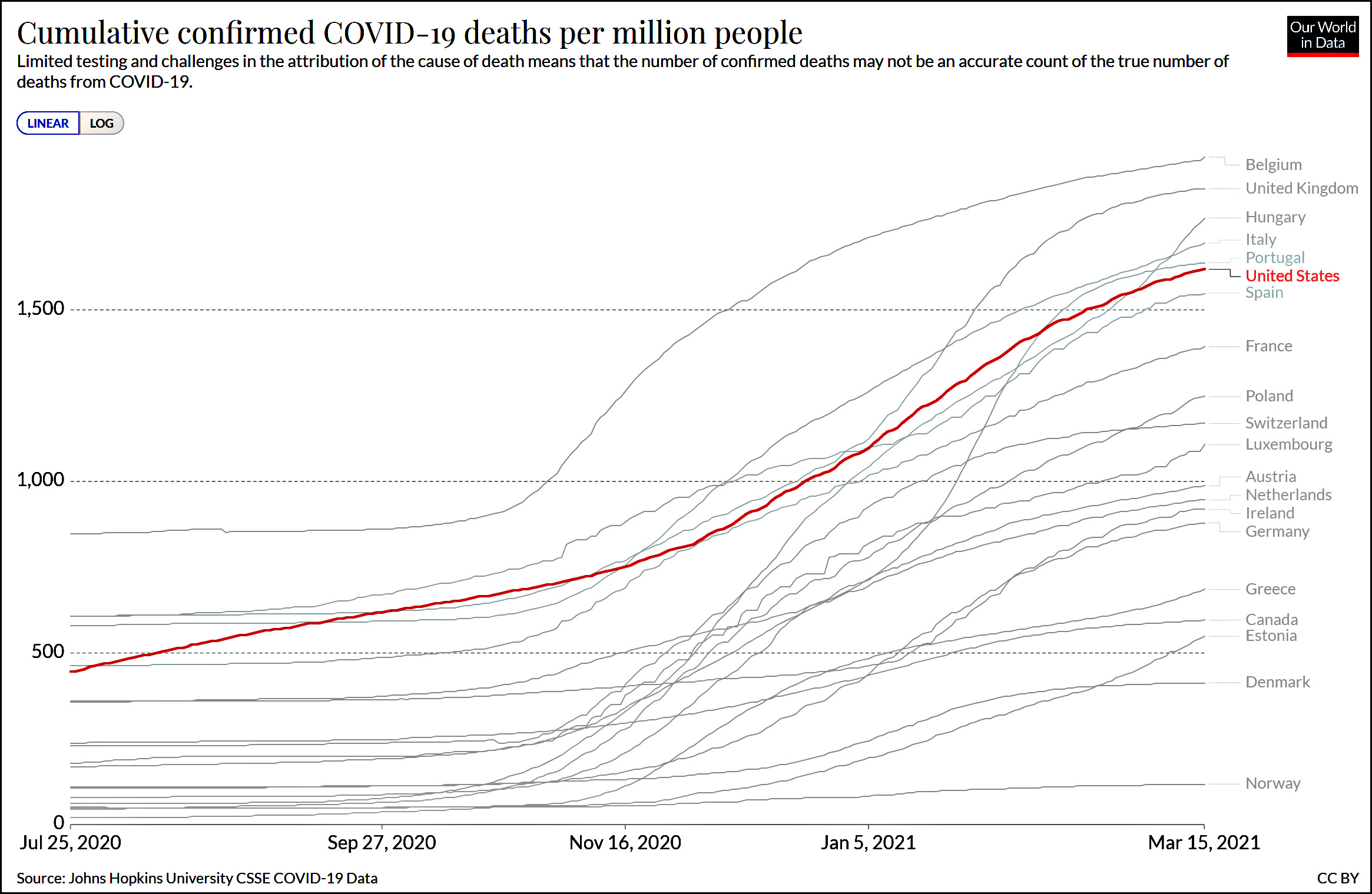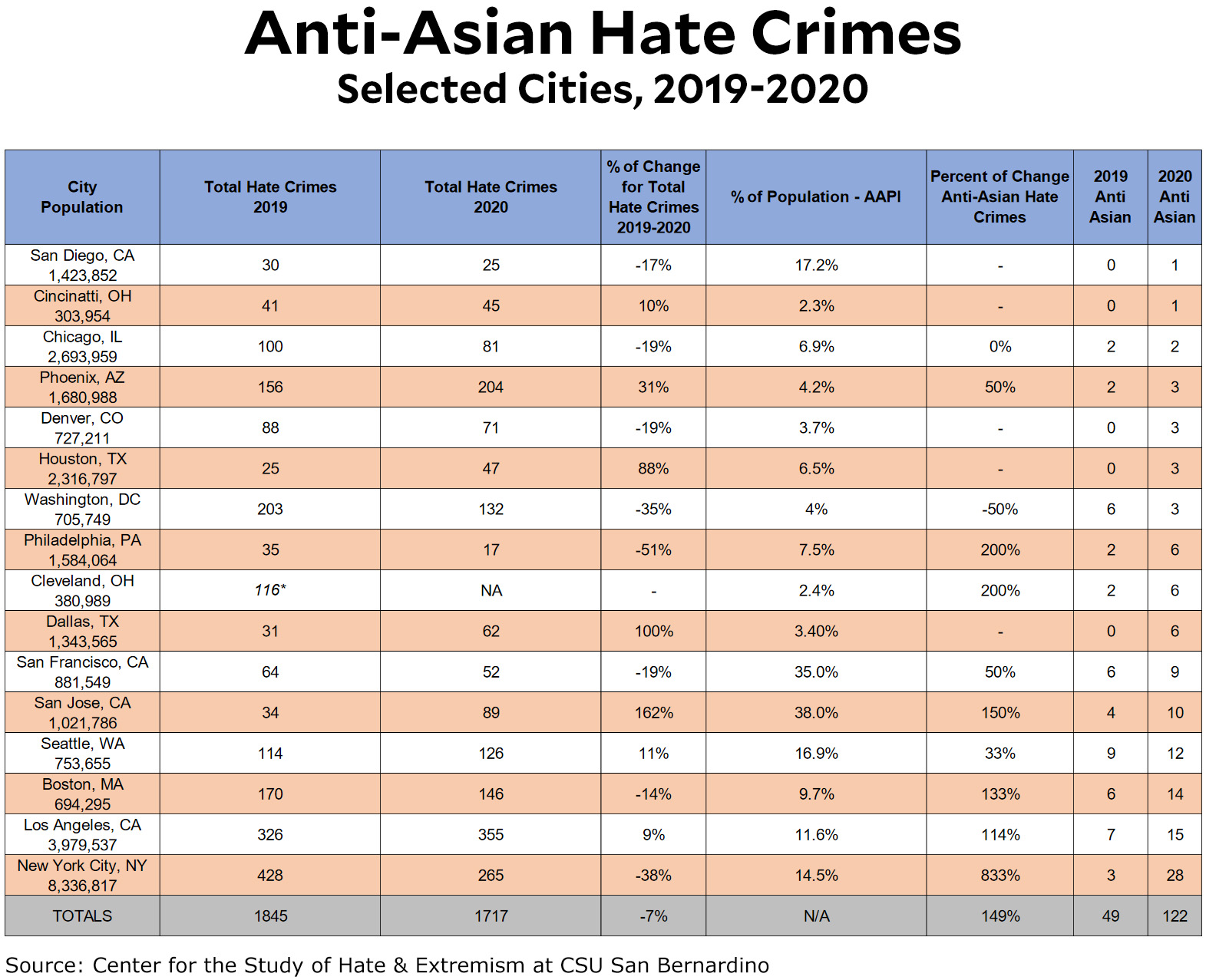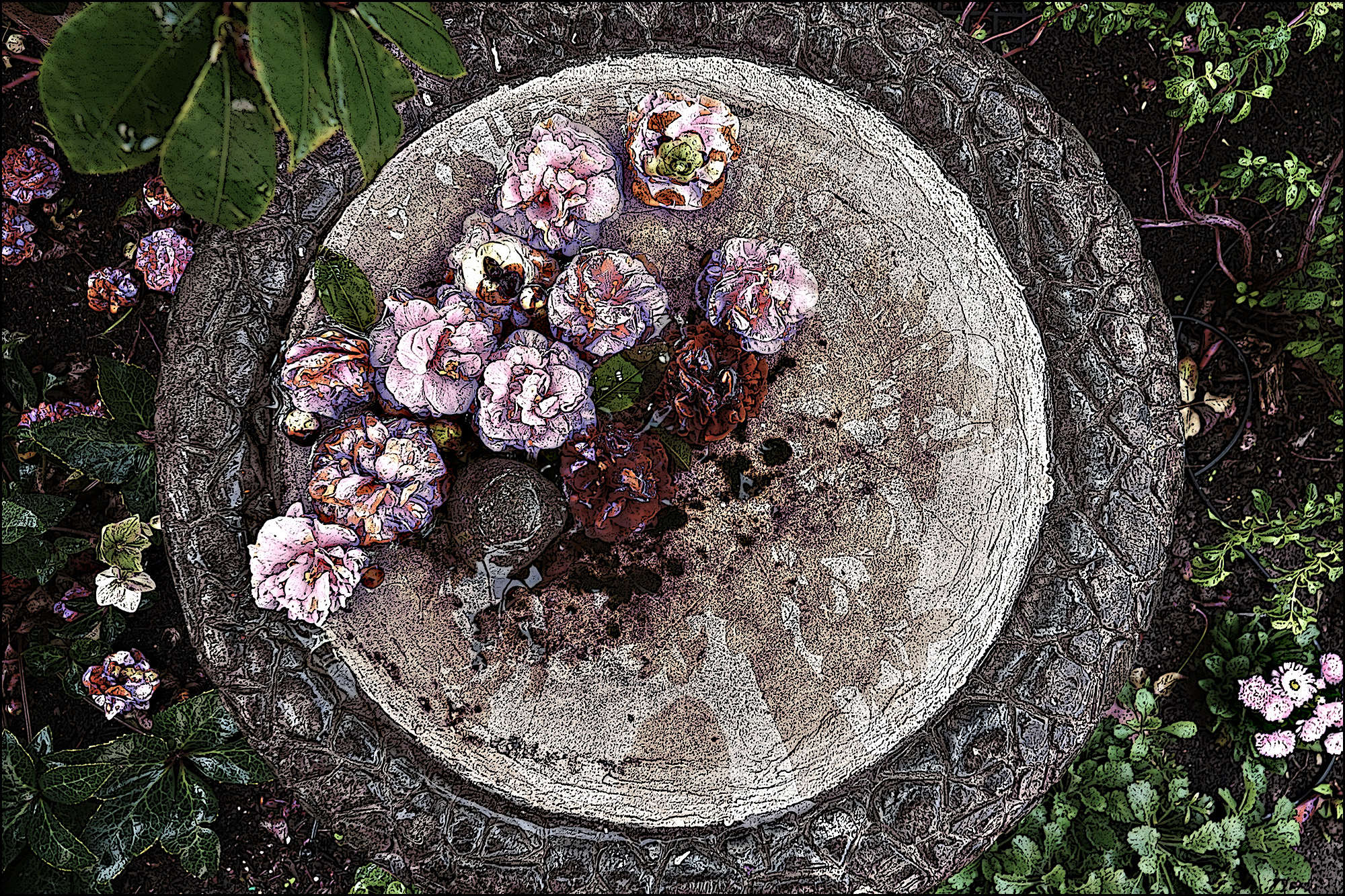In a tweet thread follow-up to his big COVID-19 piece in New York yesterday, David Wallace-Wells comments on something that ought to be obvious to everyone by now:
A few weeks ago I wrote a post arguing that our response to COVID-19 had actually been pretty good. Unfortunately, I did a lousy job of explaining exactly what I meant by that, and my follow-up post a few days later was only a little better. David's tweet gives me an excuse to give it another try, so here I go.
To put it plainly, I think his first tweet is absolutely right but his second tweet is dead wrong. When I say that our response was "pretty good," what I mean is that I think the basic public health infrastructure of the US responded fairly well. They made mistakes, but for the most part these mistakes were in the very early going when we were truly in the dark about the extent and seriousness of the coronavirus. What's more, it's genuinely unclear whether those mistakes had much of a long-term effect. Does anyone think, for example, that if the CDC had developed a reliable test a few weeks earlier than it did that our mortality spike in December would have been lower? Or that our cumulative death rate would be much different than it is today? I doubt it.
We have a tendency to go nuts over every little thing these days. Our vaccine rollout, for example, has been spectacular, but every day there are multiple stories about how some aspect or another has been mishandled. This kind of constant micro-criticism is understandable when you're dealing with life and death, but that doesn't make it true in any useful sense. The big picture is plain: Generally speaking, we've done really well both in carrying out our plan (healthcare workers first, followed by the elderly) and in our overall speed of approval and delivery (one of the best in the world).
This really and truly does leave us with only one thing that potentially had a large and long-term impact on our response to the virus: Donald Trump. He's the one who initially downplayed it; who touted a wide range of quack cures; who made mask-wearing into a culture war battle; and who insisted on opening up the economy before we were ready—which kept our mortality rate high during the summer while other countries were pushing it down nearly to zero. Trump's malign influence spread to nearly every red-state governor, most of the Republican caucus in Congress, and of course to Fox News. This is truly the big difference between the US and the rest of the West, and the reason that our mortality rate was eventually one of the worst—though not the absolute worst—among our peer countries. Under any other president, things would have been very different.

As for the overall difference in mortality between Asia and the West, the most popular explanation is cultural: following the SARS outbreak of 2003, every country in east Asia became hypersensitive to any viral outbreak centered in China. This wasn't because SARS ended up killing all that many people. It's because China lied so egregiously about what was going on that nobody trusted them anymore. In the aftermath of that, countries in the region got serious about responding instantly to a possible pandemic at practically the first sign that something was happening in China.
That didn't happen in the West, which suffered virtually no SARS fatalities outside of Canada. In fact, it had just the opposite effect: it was widely viewed as just another false alarm. This attitude carried over to 2020, which is why western countries reacted more slowly and more loosely than countries in the vicinity of China.
Needless to say, those days are long gone. Every country in the world is now on high alert, and the mistakes we made in the early days of COVID-19 are unlikely to be repeated thanks to the fact that our public health infrastructure is, in fact, pretty good. The only thing that remains an open question is whether the residents of western countries will put up with the kind of strict lockdowns that have apparently been the key to success in Asia. My personal feeling is that I doubt it. For better or worse, it's just not something we're willing to endure even when the alternative is a higher chance of death.
 As the Center notes, this large increase comes against a background of decline in overall hate crime between 2019 and 2020.
As the Center notes, this large increase comes against a background of decline in overall hate crime between 2019 and 2020.







